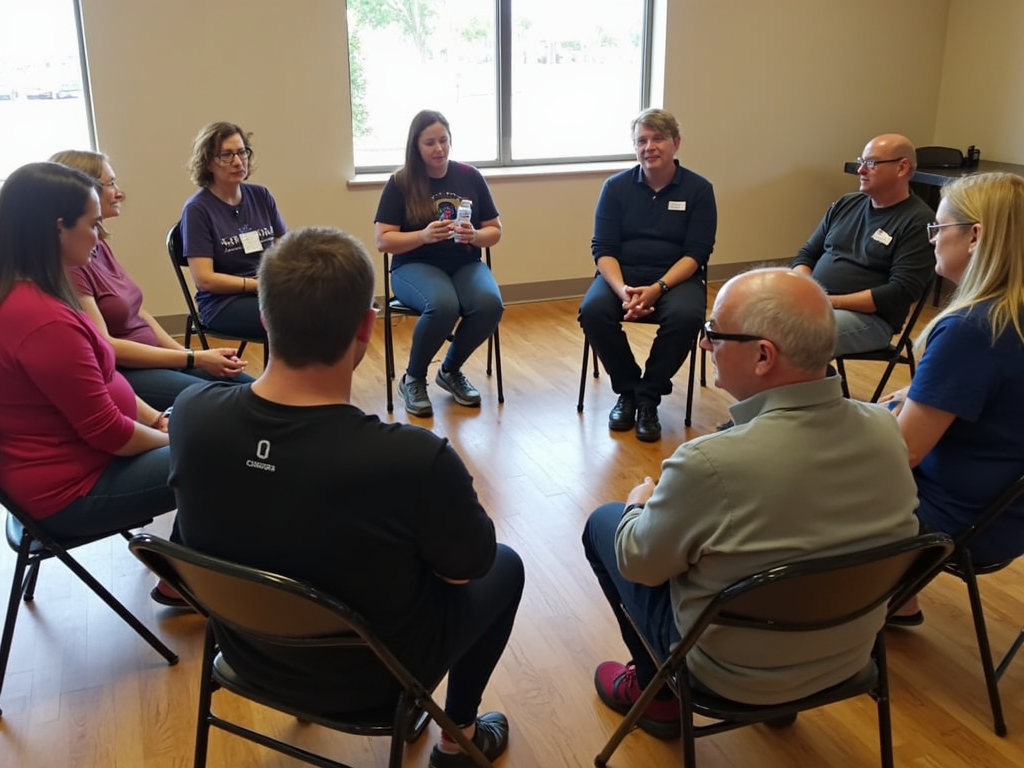The Role of Support Systems in Fertility Preservation
March 29, 2025, 12:27 p.m.
Overview
Fertility preservation offers hope for those facing medical treatments or age-related fertility decline. Yet, the process can feel overwhelming. The Role of Support Systems in Fertility Preservation is key, providing emotional strength, medical guidance, and community support to navigate this challenging journey.
The Emotional Journey of Fertility Preservation
Deciding to preserve fertility often comes at a tough time. Maybe you’ve just heard a cancer diagnosis, or you’re watching the years pass without starting a family. The emotions hit hard—fear, sadness, even hope tangled with doubt. It’s not just about freezing eggs or sperm; it’s about facing what might be lost.
This is where support steps in. A friend who listens without judgment can lift a huge weight. A counselor can help you sort through the mess of feelings. I’ve spoken to people who say joining a support group felt like finding a lifeline—they weren’t alone anymore. The Emotional Journey of Fertility Preservation is real, and having people in your corner makes it bearable.

Fertility Preservation Techniques for Cancer Patients
Cancer treatments like chemotherapy can damage fertility. For someone already fighting a tough battle, the thought of losing the chance to have kids adds extra pain. But there are ways to protect that future.
Women can freeze their eggs or embryos before treatment starts. Freezing ovarian tissue is another option, though it’s less common. Men can freeze sperm—it’s quick and straightforward. Timing matters, though. You need a medical team that works fast to fit preservation into your treatment plan.
Support systems shine here. Doctors and fertility specialists explain what’s possible and keep things moving. I’ve heard from patients who leaned on cancer support groups—people who’d been through it and could share tips. Below is a table breaking down some options:
| Technique | Description | Pros | Cons |
|---|---|---|---|
| Egg Freezing | Harvesting and freezing eggs | Keeps future options open | Needs time, may delay treatment |
| Embryo Freezing | Fertilizing eggs, freezing embryos | Higher success rates | Needs a partner or donor |
| Ovarian Tissue Freezing | Freezing ovarian tissue for later use | Quick, no delay in treatment | Still experimental |
| Sperm Freezing | Collecting and freezing sperm | Simple, non-invasive | Needs viable sperm |
These fertility preservation techniques for cancer patients give hope, but they’re easier with a team behind you.

Fertility Preservation and Age
Age creeps up on everyone, and with it, fertility fades. For women, things shift after 35—eggs decrease in number and quality. Men see changes too, though it’s slower. Some people decide to act early, preserving their fertility before life gets in the way.
Maybe you’re focused on your career or haven’t found the right partner. Freezing eggs or sperm lets you hit pause. I talked to a woman who froze her eggs at 32—she said it felt like giving herself breathing room. Support here comes from fertility specialists who check your status and guide you. Family or a partner can back you up emotionally, too. Fertility preservation and age is about planning ahead, and it’s less daunting with support.

Why Support Systems Matter in Fertility Preservation
No matter the reason—cancer, age, or something else—fertility preservation is a big step. It’s not just medical; it’s personal. Support systems tie it all together. They’re the doctor who takes time to explain, the group that gets what you’re feeling, or the partner who holds your hand.
Everyone’s support looks different. Some find online forums where they can ask questions at midnight. Others prefer a counselor’s quiet office. I’ve seen how a simple chat with someone who’s been there can shift everything. The Role of Support Systems in Fertility Preservation isn’t just nice—it’s essential.

How to Build Your Support System
You don’t have to go it alone. Here’s how to create a network that works for you:
- Talk to Your Doctor - Ask about preservation options and get referrals to specialists or counselors.
- Find Emotional Backup - Lean on friends or family, or try a therapist who knows fertility struggles.
- Join a Group - Look for local or online support groups to connect with others.
- Learn More - Read up on fertility preservation to feel more in control.
- Check Finances - Explore insurance or programs to help with costs.
I met someone who started with just a doctor’s advice and ended up with a whole crew—friends, a counselor, even a financial advisor. It’s about finding what fits.

Summary
Fertility preservation opens doors for the future, but it’s a tough road. Whether it’s the emotional ups and downs, cancer treatment challenges, or age-related choices, support systems make it manageable. They offer guidance, comfort, and a reminder you’re not alone. With the right people, this journey feels less like a burden and more like a possibility.